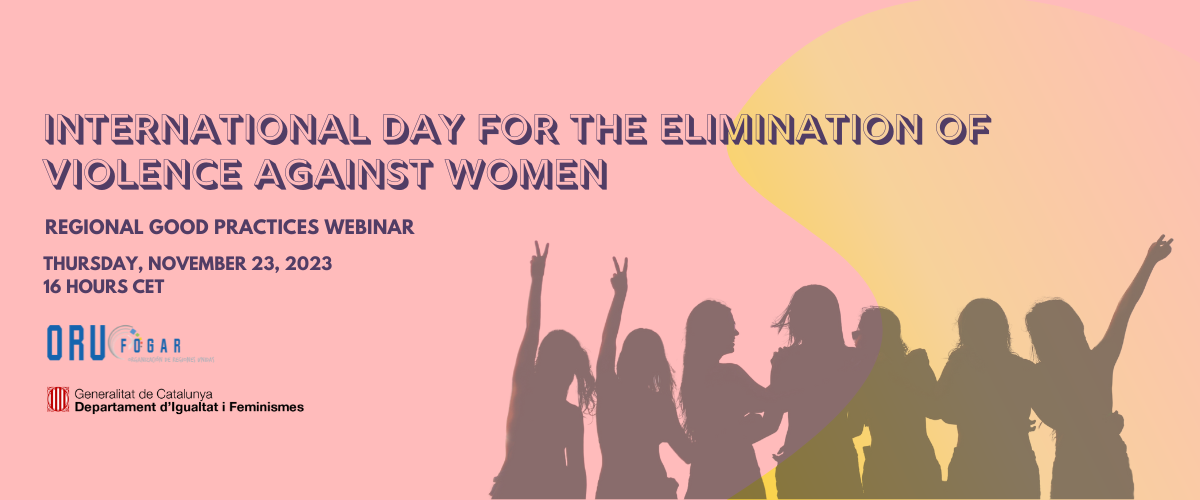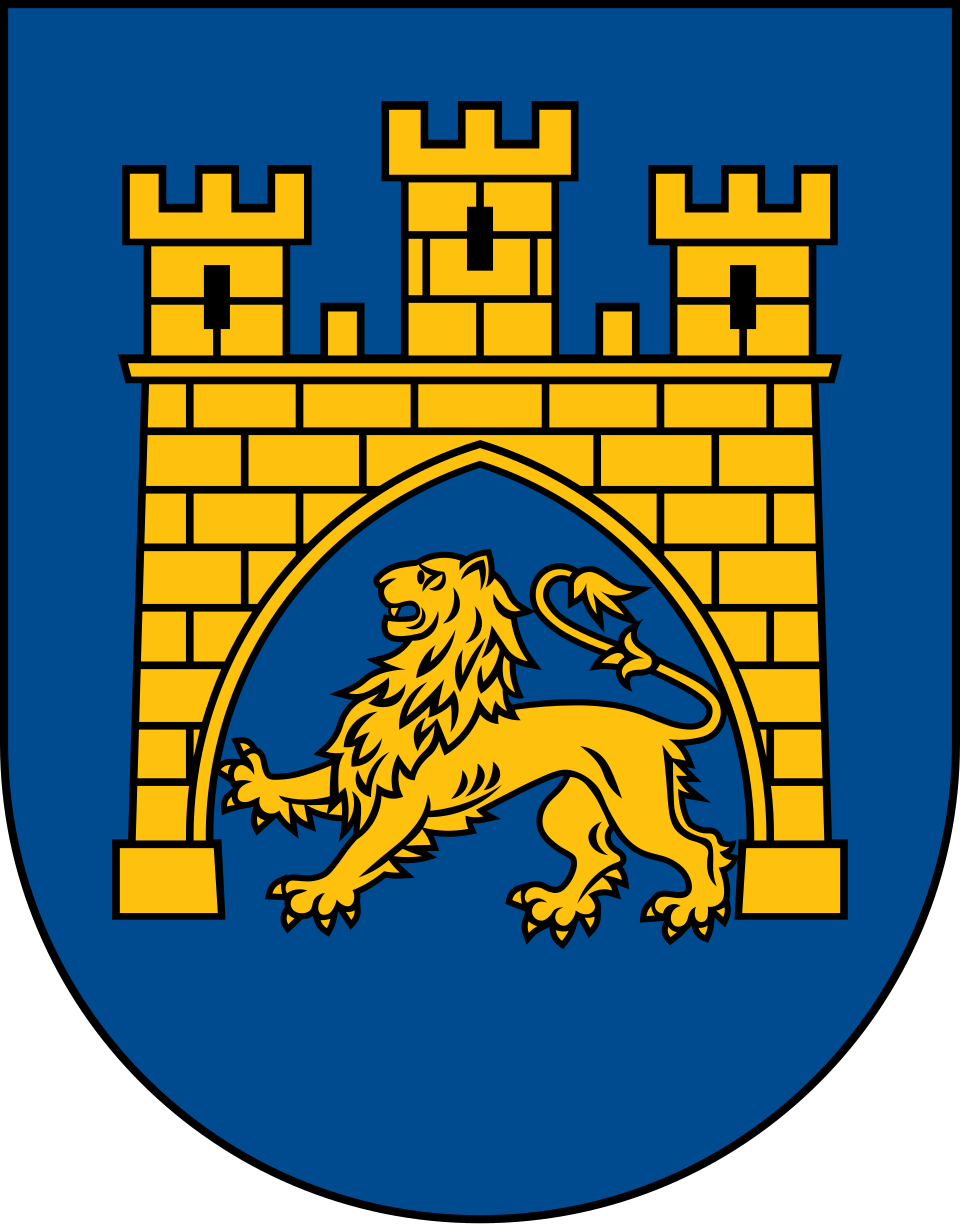Regions against gender-based violence

On 23 November, on the occasion of the International Day for the Elimination of Violence against Women, the Catalan Regional Ministry of Feminism and Equality and ORU Fogar organised a webinar entitled "Regions against Gender Violence" in which eight outstanding good practices were presented. The webinar showed that violence against women is universal, affects all countries, all cultures and has multiple forms. It also showed that regions have been at the forefront in eradicating this violence.
The event was opened by Laia Rosich, Director General for the Eradication of Gender Violence of the Government of Catalonia, who highlighted the two European, two African and four Latin American good practices. She was accompanied at the opening by Mary Mwiti, Executive Director of the Council of Governors of Kenya, and Mbarka Bouaida, President of the Association of Regions of Morocco. Both pointed to the need for all levels of government to be involved in this fight, but the importance of the regions, as grassroots governments, playing a leading role. The whole world," said the Kenyan leader, "must get involved in this issue. The Moroccan President highlighted how this violence causes more deaths than all wars.
The first good practice to emerge was the Scottish Government's "Don't be that guy" campaign. When it was made public, the video of this campaign immediately went viral. It called on men to change their attitudes and behaviour to prevent crimes of sexual violence. He explains: "Most men don't look in the mirror and see a problem. Sexual violence starts much earlier than you think. Don't be this guy”. In it, several men describe actions that are often passed off as insignificant, but which women may find threatening or intimidating. The recording has been broadcast all over social media and leads to a website full of information on how men can help combat male violence against women.
Two of the other good practices presented in the webinar had won the ORU Fogar and UNDP Regional Good Practices Award: the Polo de la Mujer of the Province of Cordoba (Argentina) won this year 2023, but Patrulla Maria da Penha of the State of Rio de Janeiro (Brazil) won in 2021. The Polo de la Mujer in Córdoba is a very comprehensive project, but it deserved special attention when describing the technological tool for the protection of women in situations of violence (the anti-button). This is one of the protection measures that can be provided in cases of gender-based or family violence and can be accompanied by measures such as the restriction of approach, exclusion from the aggressor's home or the use of the dual device (or electronic anklet). The device is GPS-enabled, so that when the SOS button is pressed, the device should automatically and immediately call the care system. During the month of May, 40 panic buttons were issued every day in the Province of Córdoba. During the same month, 303 times they were activated somewhere in the territory. According to data provided by the Ministry of Women's Affairs of the Province, there are 5,081 active devices throughout the province.
The "Maria da Penha Patrol" project is a state police programme focused on assisting women victims of violence. It seeks an integrated and articulated action with all the organs of the justice system, the network of support and assistance to women in situations of violence, as well as civil society, through organisations dedicated to the issue. In this way, the State Police aims to prevent violence which, in that geography, frequently ends in femicide.
The Gender and Family Police Station of the Province of Tierra del Fuego (Argentina) and the Purple Patrol against gender violence of the Department of Quindío (Colombia) are working along similar lines. The first one has been operating since 2017 and was an initiative of the provincial government, together with civil society organisations and the support of the community. Beyond police work, this police station carries out awareness-raising and prevention actions in the community, through talks, workshops and awareness-raising campaigns on gender-based violence and its consequences. In Quindío, a police unit specialised in the service of prevention, attention and care against domestic violence, based on a gender approach. The aim is to provide comprehensive care for women as well as to facilitate their access to justice. This service is aimed at strengthening the professional competencies of the police. The Patrol has the responsibility to prevent and deal with cases of violence against women 24 hours a day, but also to prevent, teach, guide and disseminate information on how to act in these situations.
The good practices presented by African regions were very different. They deserved, however, the most attention - surely - when it became known that, according to a UN Women study published in 2019, being a woman in Africa means, more than elsewhere, enduring an existence marked by violence. "Africa is the continent where women are most likely to be killed by an intimate partner or family member," it reveals. Femicides, a global scourge, kill mainly women in the family, sex workers, but also elderly women in prison or orphaned girls accused of witchcraft. An act of annihilation that is often part of a continuum of physical, sexual, psychological and economic brutality. Described by the UN as "the most widespread but least visible human rights violation in the world", gender-based violence affects African women on a massive scale.
In Niger, according to a study by the German Friedrich-Ebert-Stiftung, 99% of rape victims do not go to court. And when they do, the sentences do not reflect the seriousness of the crimes. Faced with this situation, the Tahoua Regional Council, as explained by its Vice-President, Nana Haouaou Maikelema, tackles the situation in its territory by raising awareness and counting on the complicity of religious leaders. A similar reality was presented by Tening Sene, responsible for gender in the Departmental Council of Gossas (Senegal) when she explained the project "Strengthening the economic autonomy of rural women to reduce gender-based violence". The aim is to strengthen the economic and financial power of rural women by introducing renewable energies in agricultural production and processing of local products. These empowered women will be able to participate more in the primary needs of the family, thus strengthening their contribution to the family economy. Based on the assumption that if they contribute financially to family expenses, violence by men will be considerably reduced.
The last good practice was presented by Catalonia: Reparation and compensation for women who suffer gender-based violence. In 2020, the modification of the Law on the right of women to eradicate male violence led to the creation of a pioneering framework in the fight against male violence, due to the breadth of forms and areas of male violence that it recognises and the perspectives for intervention in the face of this violence. This framework has enabled the Government of Catalonia to make progress in terms of reparation and compensation for victims. Thus, women survivors of any of the forms of violence specified in the law and with a final sentence, will not have to prove injuries or sequelae with a medical report or court ruling to receive compensation. The simplification of the procedure will increase the number of women who will be eligible for compensation, as many were excluded because the sentence does not always include the after-effects of the violence suffered. Also, for the first time, mothers who have lost their children as a result of vicarious violence will be entitled to compensation and police reports will be sufficient to prove the situation. Finally, the amount of compensation for the daughters and sons of women murdered by gender violence is also increased and, for the first time, the sons and daughters will not have to present a judicial sentence for gender violence prior to the feminicide of their mother.
In the final speeches, the Minister for Women of the Province of Córdoba, Claudia Martínez, encouraged everyone to participate in ORU Fogar's Gender Working Group, which has been promoted together with the Catalan Minister Tània Verge. Finally, the event counted with the intervention of Maria Noel Vaeza, senior advisor to the Executive Director of UN Women and Executive Director of the Generation Equality project.










































































